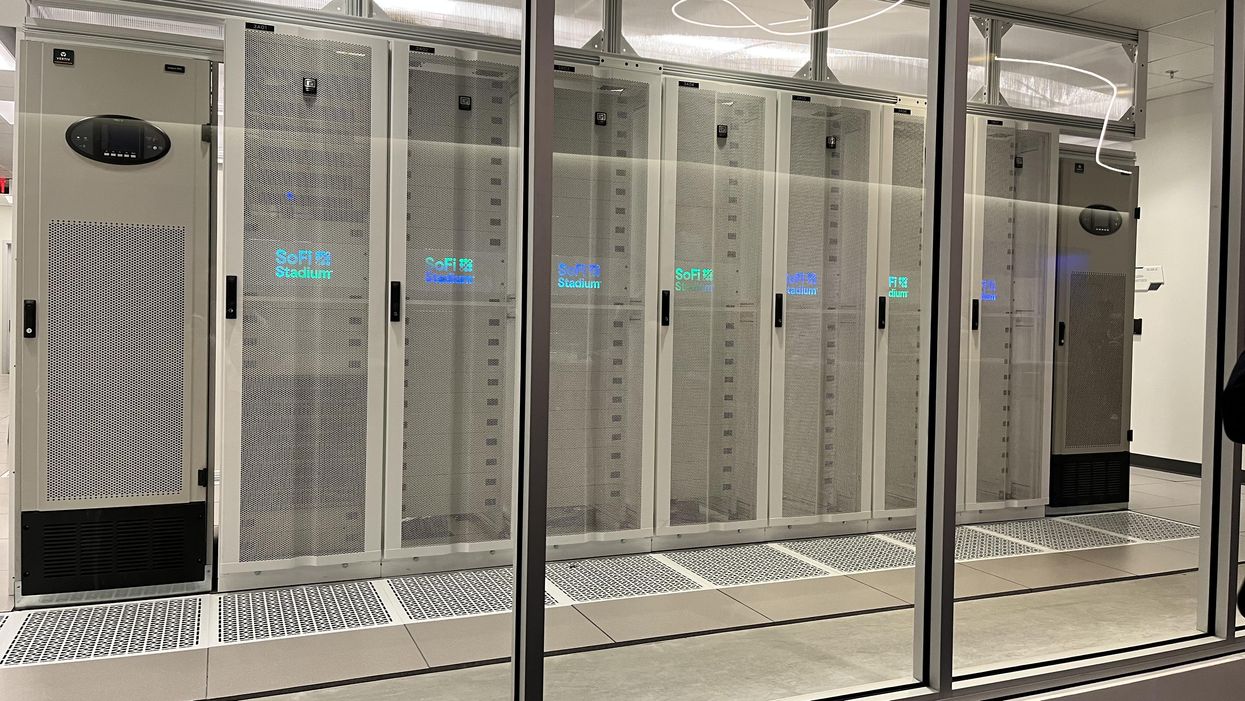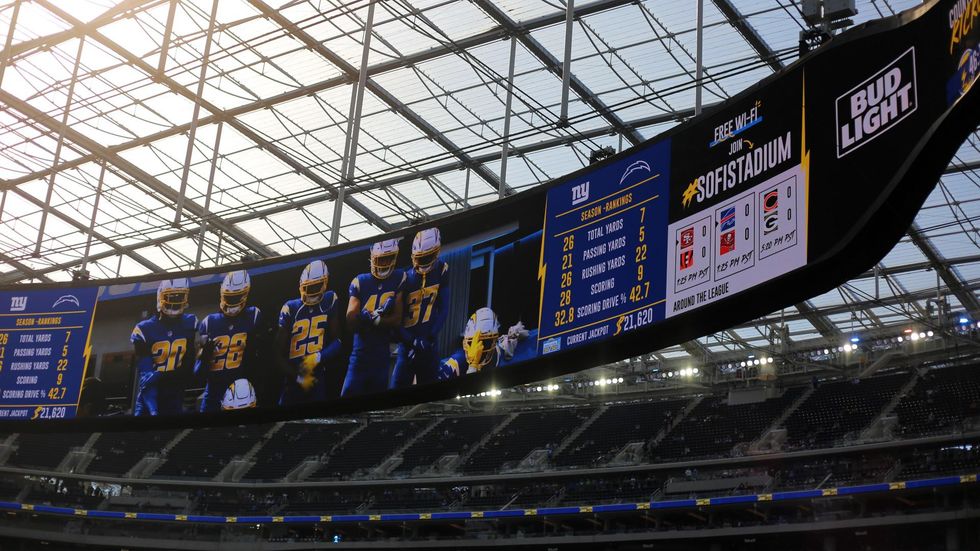

Get in the KNOW
on LA Startups & Tech
X
Courtesy of Yohana
Yohana, a Concierge Service for Families, Launches in LA
Keerthi Vedantam
Keerthi Vedantam is a bioscience reporter at dot.LA. She cut her teeth covering everything from cloud computing to 5G in San Francisco and Seattle. Before she covered tech, Keerthi reported on tribal lands and congressional policy in Washington, D.C. Connect with her on Twitter, Clubhouse (@keerthivedantam) or Signal at 408-470-0776.
Who do you call when three simultaneous Zoom meetings have throttled your internet connection for the fifth time this week and your child has a last-minute project that needs to be completed?
Yohana—a company positioning itself as a household concierge service that helps families address the various issues and tasks that crop up in day-to-day life—wants to be that call. And after initially piloting in Seattle last year, the Palo Alto-based company is now making Los Angeles its second core market, officially launching in the city on Tuesday.
Deploying a membership model that costs $249 per month, Yohana promises to help its customers with everything from finding a plumber to planning a birthday party to buying baby food. The company partners with local piano teachers, handymen, flower shops and other service providers to provide such tasks. It also teams each family subscribed to its platform with a guide and researchers who help manage both short-term tasks like home repairs and long-term goals like travel itineraries.
Yohana is the brainchild of founder and CEO Yoky Matsouka, a former Google and Apple executive who served as chief technology officer of Google’s Nest smart home division from 2017 to 2019. After leaving Google, Matsouka started Yohana in 2020 with the goal of creating family-centric technology. She opted to eschew Silicon Valley’s traditional venture capital-backed startup model and instead partner with an old-school tech company: Panasonic, the Japanese consumer electronics conglomerate, which backs Yohana as a fully-funded independent subsidiary.
“[At Nest] it felt that it was very linear no matter how fast we moved; it was a startup with a brand that nobody knew about, and then it takes a long time to build that up,” Matsouka said of her time at Nest prior to its $3.2 billion acquisition by Google in 2014. With the Panasonic partnership, she told dot.LA, “I have the ability with a larger company to utilize their brands to springboard much faster.”
Yohana first launched in Seattle in 2021 via a pilot program involving more than 1,000 households, who it claims were able to save some 8 to 10 hours per week in household tasks by using the service. Through the pilot, Matsouka said the company was able to further refine its product in advance of forays into new markets like L.A. For instance, it built new security and encryption applications to help families manage their credit cards and other sensitive files.
“Initially before we launched in Seattle, we thought that people would not give us really personal tasks like passport renewal,” Matsouka said. “It turns out people felt the need to have a lot of personal data passed on to us so that we can do more tasks.”
In the future, according to Matsouka, the company will be able to leverage its hordes of data through the power of AI and machine learning to make life easier for customers and vendors alike—so that if multiple families are requesting the same service or experience, for example, Yohana’s technology can help streamline the planning.
Yohana’s tech-enabled platform nestles alongside more established ventures like TaskRabbit and Instacart in what’s called the family-tech space, an emerging subsector that collected $1.4 billion in venture capital money in 2021, according to Pitchbook
From Your Site Articles
- WeeCare Raises $17 Million As Childcare Startups Boom - dot.LA ›
- Playa Vista Childcare Center Brella Raises $5 Million, Eyes New LA ... ›
Related Articles Around the Web
Keerthi Vedantam
Keerthi Vedantam is a bioscience reporter at dot.LA. She cut her teeth covering everything from cloud computing to 5G in San Francisco and Seattle. Before she covered tech, Keerthi reported on tribal lands and congressional policy in Washington, D.C. Connect with her on Twitter, Clubhouse (@keerthivedantam) or Signal at 408-470-0776.
https://twitter.com/KeerthiVedantam
keerthi@dot.la
LA Is Betting on Nukes, Netflix and Next-Gen Attention
11:30 AM | December 19, 2025
🔦 Spotlight
Hey Los Angeles.
If you were looking for a quiet week, this was not it. LA is backing a portable nuclear reactor, Netflix just took a big step closer to owning Warner Bros. Discovery’s future, and Snapchat is basically handing the city a mirror and saying, “Here is what you did with your attention all year.”
Let’s dive in.
Radiant’s microreactors and LA’s new nuclear moment
Radiant Nuclear raised more than $300M in a Series D round to build Kaleidos, a one megawatt portable nuclear microreactor that is designed to roll off a factory line, ship in a standard container and replace diesel generators at remote sites, military bases and disaster zones. The new capital will fund a full scale test at Idaho National Lab and the build out of Radiant’s R 50 factory in Oak Ridge, Tennessee, which aims to produce up to 50 reactors a year starting later this decade.
For LA’s climate and infrastructure ecosystem, this is a big tell. The city that got rich on pipelines of content is now funding pipelines of electrons, betting that small, modular nuclear can be part of the grid story that powers everything from data centers to defense. It is a very different flavor of LA tech, but the pattern is familiar: take a frontier technology, wrap it in product thinking and try to make it feel as boring and reliable as a utility bill.
Netflix and Warner Bros. Discovery: one step closer
On the media front, Netflix just received an official recommendation from Warner Bros. Discovery’s board to proceed with the planned acquisition of WBD’s studios and streaming business. The board reaffirmed that the Netflix deal, which would fold Warner Bros. film and TV, HBO and HBO Max into Netflix, is in the best interest of shareholders, even as competing ideas swirl around what to do with the company.
Practically, this does not mean the deal is done. It means the process has moved from “big idea in a press release” into the slower, more serious phase of shareholder approvals and regulatory review. For Los Angeles, every incremental step like this reinforces the likely end state: a world where a handful of global platforms control not just distribution but also the studios and libraries that defined Hollywood’s last century.
Snapchat’s 2025 Recap and the attention economy in our backyard
Then there is Snapchat, which used its 2025 Recap to show off what its mostly Gen Z and Gen Alpha users actually did on the app this year. The company is leaning into personalized “year in review” stories that highlight top chats, memories, maps moments and creator content, while quietly reminding brands and investors that Snap still owns a very specific slice of youth attention that is hard to find anywhere else.
For LA, Snapchat’s recap is more than a cute end of year product. It is a reminder that some of the most important social infrastructure for the next generation is being built and iterated a short drive from Santa Monica Boulevard. While the grown ups argue about nuclear reactors and studio mergers, Snap is training the next wave of consumers how to communicate, create and remember their lives on a platform that barely existed fifteen years ago.
Taken together, this week says a lot about what “LA tech” means in 2025. On one end, you have Radiant trying to change how we power the physical world. On the other, Netflix and Snapchat are fighting over how we package and monetize the stories that live in our heads. Somewhere in the middle are the founders, investors and operators here who see all of this as raw material.Now keep scrolling for this week’s LA venture deals, fund announcements and acquisitions.
🤝 Venture Deals
LA Companies
- Fixated secured a $50M strategic investment from Eldridge Industries to fuel what it calls the “next era of creator-led empires.” The company says the capital will help it expand its capabilities and partnerships that support creators in building and scaling their own brands and businesses beyond traditional sponsorship deals. - learn more
- Vital Lyfe raised $24M in financing, including more than $18M in seed funding, in a round led by Interlagos and General Catalyst with participation from Generational Partners, Cantos, Space.VC and Also Capital. The Hawthorne based startup, founded by former SpaceX engineers, will use the capital to ramp manufacturing of its portable, autonomous “water making” systems, expand early deployments with partners like maritime operators and NGOs, and prepare for its first consumer ready products in 2026. - learn more
- Molly Sims’ YSE Beauty closed a $15M Series A growth equity round led by Silas Capital, with participation from L Catterton and existing backers Willow Growth Partners and Halogen Ventures. The clinically tested skincare brand, which targets women 35+ and recently rolled out nationally at Sephora, will use the funding to fuel product development, expand across Sephora doors in the U.S., and grow its direct-to-consumer e-commerce business. - learn more
- Ember LifeSciences raised a $16.5M Series A led by Sea Court Capital, with participation from Cardinal Health, Carrier Ventures and other strategic investors including former U.S. Secretary of State Mike Pompeo. The Los Angeles based cold chain tech company will use the funding to launch its next generation Ember Cube 2 shipping system and expand globally, helping pharma and healthcare customers cut temperature related losses and waste in medicine distribution. - learn more
- Strada, a Los Angeles–based media collaboration startup, received a strategic investment from Other World Computing (OWC) to accelerate its product roadmap. The company’s peer-to-peer platform lets video pros access, share and review large files directly from local drives anywhere in the world, without uploading to the cloud. The partnership will also include co-marketing efforts, joint NAB 2026 presence, and bundled offerings that pair Strada’s software with OWC’s storage and workflow hardware. - learn more
LA Venture Funds
- Calibrate Ventures participated in Manifold’s Series B round, backing the company as it scales its AI technology platform. Manifold plans to use the new capital to accelerate product development, deepen its capabilities for enterprise customers, and grow its team to support broader commercial rollout. - learn more
- SmartGateVC participated in NeuraWorx’s oversubscribed seed round, which was led by Nexus NeuroTech to back the company’s neurotechnology based therapies for central nervous system (CNS) disorders. NeuraWorx plans to use the capital to advance its R&D and early clinical work, build out its technology and product pipeline, and expand its team as it moves toward bringing new CNS treatments to market. - learn more
- Kinship Ventures participated in Lovable’s $330M Series B, which values the Stockholm based “vibe coding” platform at $6.6B in a round co-led by CapitalG and Menlo Ventures’ Anthology fund. The company lets non developers build full stack software from natural language prompts, and says it will use the new capital to scale its AI native platform globally, deepen enterprise features and integrations, and support a fast growing base of business users building production apps on Lovable. - learn more
- B Capital participated in MoEngage’s $180M Series F follow-on, which brings the customer engagement platform’s total Series F raise to $280M. The round was led by ChrysCapital and Dragon Funds, with Schroders Capital and TR Capital also joining, and will be used to accelerate MoEngage’s Merlin AI product roadmap, expand go-to-market teams across North America and EMEA, and pursue strategic acquisitions while also funding an employee and early-investor liquidity program. - learn more
- O'Neil Strategic Capital led HEN Technologies’ $22M financing, which combines a $20M oversubscribed Series A with $2M in venture debt, to build what the company calls the industry’s first operating system for fire defense. The Hayward based startup will use the capital to scale its IoT enabled hardware and Fluid IQ predictive AI platform, capture a comprehensive operational fire dataset, and expand global deployments with distributors and agencies as it aims to make fire suppression faster, more efficient and data driven. - learn more
- Core Innovation Capital participated in Transparency Analytics’ second funding round, backing the company alongside lead investor Deciens Capital, Allianz Life Ventures, Mouro Capital, FJ Labs and SUM Ventures. Transparency Analytics, which provides quantitative, tech enabled credit ratings and benchmarking for private credit, will use the funding to scale its platform, refine go to market strategy and build out products like its private credit index as the asset class grows. - learn more
- Upfront Ventures participated in Nanit’s $50M growth round, which was led by Springcoast Partners with support from JVP. The company will use the funding to expand its AI powered Parenting Intelligence System and related tools that give parents real time, personalized insight into a baby’s sleep, health and development between pediatric visits. - learn more
- Integrity Growth Partners fully funded Fluency’s $40M Series A, coming in as the company’s first major institutional investor. Fluency, a “digital advertising operating system,” centralizes and automates paid media across Google, Meta, TikTok, programmatic and more, already powering nearly $3B in annual ad spend and over 250,000 monthly campaigns. The company plans to use the capital to enhance its automation and agentic AI capabilities, expand integrations with publishers and tech partners, and grow its team. - learn more
- JAM Fund joined Last Energy’s oversubscribed $100M+ Series C, backing the advanced nuclear startup as it pushes to commercialize its factory built microreactors. The round was led by Astera Institute with investors including Gigafund, The Haskell Company, AE Ventures, Ultranative, Galaxy Interactive and Woori Technology. Last Energy plans to use the capital to complete its PWR-5 pilot reactor under the U.S. DOE’s Reactor Pilot Program, ramp manufacturing in Texas, and advance its larger PWR-20 units toward commercial deployment in the U.S. and U.K. - learn more
LA Exits
- NextWave is being acquired by Pattern, bringing the TikTok-focused commerce agency under Pattern’s umbrella to strengthen its TikTok Shop and creator-led commerce capabilities. The deal folds NextWave’s expertise in TikTok Shop strategy, operations and creator partnerships into Pattern’s broader ecommerce platform, giving brands a single partner to manage marketplace, DTC and social shopping channels. - learn more
- Ubiquitous is being acquired by Humanz as part of Humanz’s broader push to build a next-gen, data driven creator economy platform alongside its recently announced $15M funding round. The deal folds Ubiquitous’ creator marketing and TikTok/native social expertise into Humanz’s influencer analytics and campaign tooling, giving brands a more end-to-end partner for strategy, creator management and performance measurement across major social channels. - learn more
- Silver Tribe Media is being acquired by TPG-backed Initial Group, which is folding the company into its broader sports and entertainment platform. The deal brings Silver Tribe’s storytelling, production and athlete brand work under Initial Group’s umbrella, giving it more capital and distribution while expanding Initial’s in-house content capabilities around teams, athletes and sponsors. - learn more
- Duffl, the YC-backed campus delivery startup, is being acquired by Rev Delivery, bringing its “10M campus delivery pioneer” operation under Rev’s umbrella. The acquisition folds Duffl’s college-focused, ultra-fast delivery network and playbook into Rev’s hyper-growth delivery operators, with the goal of scaling on-demand service across more campuses and strengthening Rev’s position in student-centered last-mile logistics. - learn more
Read moreShow less
'LA Hasn't Built a Stadium of This Size in 100 Years': SoFi Stadium Is Ready for Its Super Bowl Close Up
08:08 AM | February 05, 2022
Photo by Decerry Donato
There will be plenty of fanfare around NFL stars like Matt Stafford, Aaron Donald, Joe Burrow and Ja’Marr Chase when Super Bowl LVI comes to Los Angeles on February 13. But for 70,000-plus people in attendance and millions watching around the world, there will be another superstar on display: SoFi Stadium.
The 3.1 million-square-foot behemoth in Inglewood is a state-of-the-art technological marvel, featuring a 70,000-square-foot video board (dubbed the “Infinity Screen”), lightning-fast Wi-Fi and a massive LED canopy. SoFi Stadium relies solely on digital displays for everything from advertising to concession stand menus; that also comes in handy since the arena has two NFL tenants, the Rams and the Chargers, and can easily rotate their branding according to who’s playing that day.
With a whopping $5.5 billion price tag, the stadium’s top brass has visions that go far beyond the Super Bowl. The facility is also a concert venue that will host the likes of the Red Hot Chili Peppers and Bad Bunny this year, and it will play a feature role in the 2028 Summer Olympics in L.A.

"We’re building a smart campus," Skarpi Hedinsson, chief technology officer of SoFi Stadium and the surrounding Hollywood Park complex, told dot.LA. “L.A. hasn’t built a stadium of this size in 100 years.”
Privately financed by the Rams’ billionaire owner, Stan Kroenke, SoFi Stadium is built on a single, converged network—powered by Cisco and partner technology integrator AmpThink—that connects virtually every piece of digital infrastructure in the stadium. That offers more robust Wi-Fi access, and enables fans to enter through the turnstiles using mobile tickets and purchase concessions and merchandise with digital wallets like Apple Pay.
“We’ve designed the network looking forward to the 2028 Olympics, where we would expect to see a lot more people on the network across the campus and much larger traffic consumption,” AmpThink CEO Bill Anderson told dot.LA.
Cisco’s connected Wi-Fi network utilizes the next-generation Wi-Fi 6 standard, offering faster speeds and increased bandwidth. Currently, SoFi Stadium has more than 2,500 Wi-Fi 6 access points, the largest such deployment at a sports venue. Cisco is also responsible for the IT at Hollywood Park’s adjoining, 6,000-seat YouTube Theater and American Airlines Plaza, a sprawling open-air space that serves as a main entrance to the stadium.

SoFI Stadium’s tech features include a metaverse app called Dreamground that displays virtual sculptures and interactive features.
Photo by Decerry Donato
Originally, SoFi Stadium’s data center was designed to hold seven server racks and thousands of servers. But because the network is consolidated, the stadium only needs one-half of a rack that holds a few hundred servers to power the 300-acre property. (Implementing the technology required a lot of manpower: Over 17,000 people worked on the project, with 3,500 people on-site daily.)
Other technological features at SoFi Stadium include Dreamground—a metaverse app that allows guests to interact with an augmented digital world, complete with virtual sculptures and interactive features, which can be accessed throughout the stadium and Hollywood Park.
And, of course, there’s the enormous “sunbrella” LED canopy hanging above the stadium. Though it’s hidden in plain view, the semi-translucent roof not only protects visitors from the weather but also functions as a giant overhead video screen.
For Hedinsson and the rest of SoFi Stadium’s tech team, Super Bowl Sunday isn’t just a chance for the Rams to become NFL champions—it’s an opportunity to showcase the arena’s cutting-edge technology before a global audience. Hedinsson paid particular tribute to Kroenke’s vision for the project.
“The commitment that [Kroenke] had from the very beginning—making sure it has the latest technology, that it has a differentiated guest experience—you’re seeing that play out,” Hedinsson said.
From Your Site Articles
- Kevin Demoff: In Football and Business, Communication is Key - dot ... ›
- Staples Center Will Become Crypto.com Arena - dot.LA ›
- Dodger Stadium Gets a Tech Upgrade for Opening Day - dot.LA ›
- The New Tech at Dodger Stadium - dot.LA ›
- Glytch Wants to Build 32 Esports Arenas Across the Country - dot.LA ›
- Another Ticketmaster Fiasco Fuels More Antitrust Questions - dot.LA ›
- Another Ticketmaster Fiasco Fuels More Antitrust Questions - dot.LA ›
- Big Tech Stories To Follow Before the Super Bowl - dot.LA ›
Related Articles Around the Web
Read moreShow less
Decerry Donato
Decerry Donato is a reporter at dot.LA. Prior to that, she was an editorial fellow at the company. Decerry received her bachelor's degree in literary journalism from the University of California, Irvine. She continues to write stories to inform the community about issues or events that take place in the L.A. area. On the weekends, she can be found hiking in the Angeles National forest or sifting through racks at your local thrift store.
RELATEDTRENDING
LA TECH JOBS








